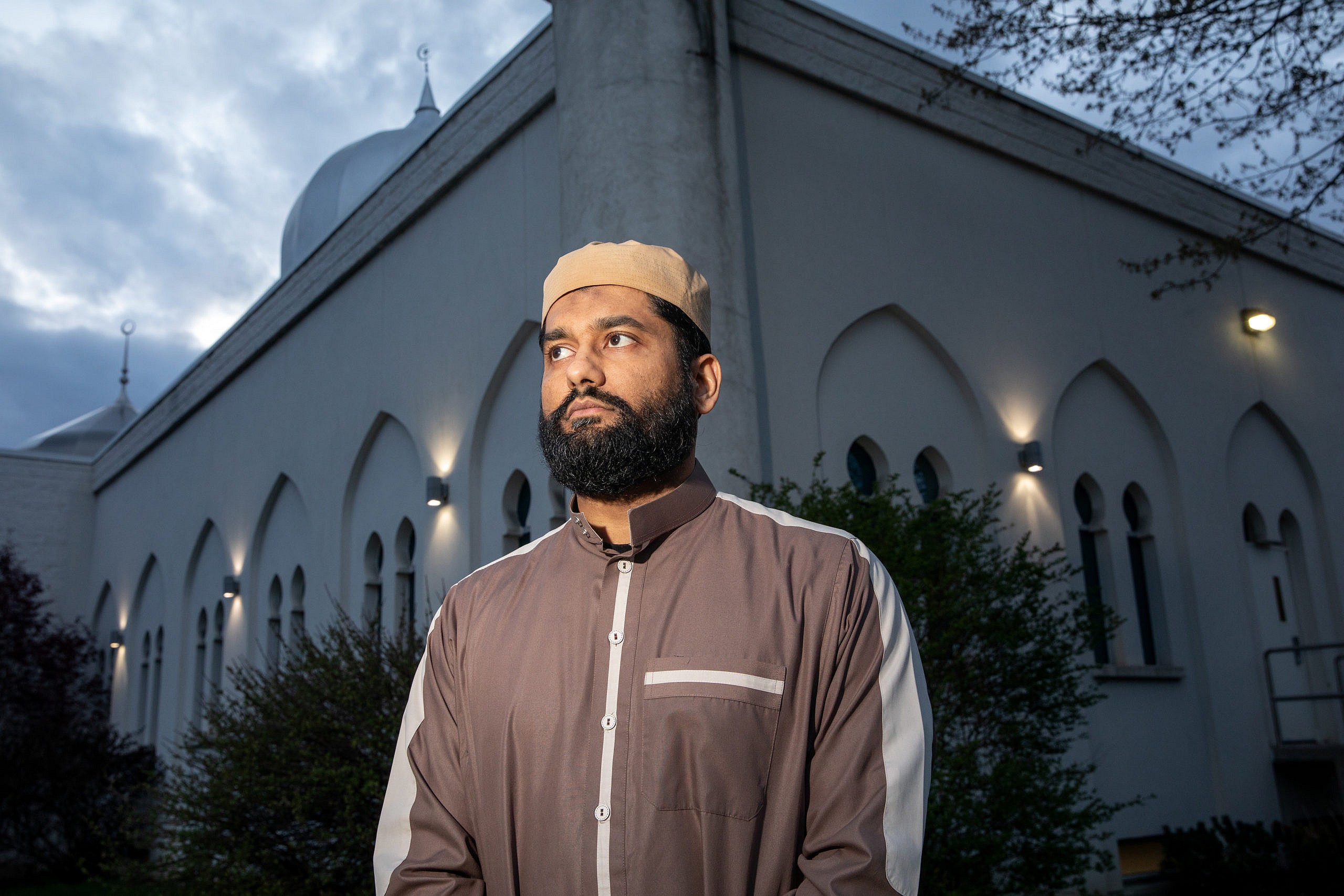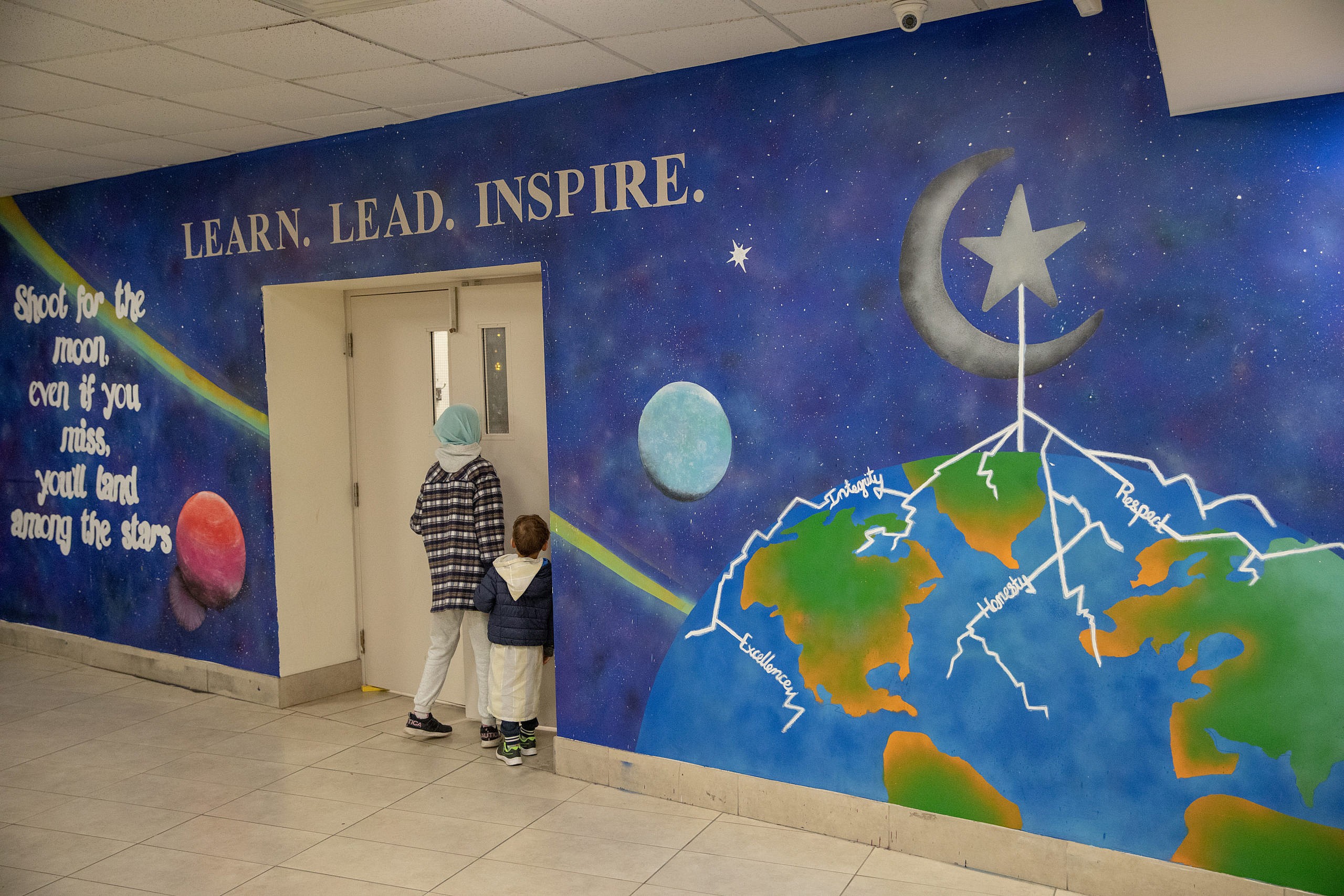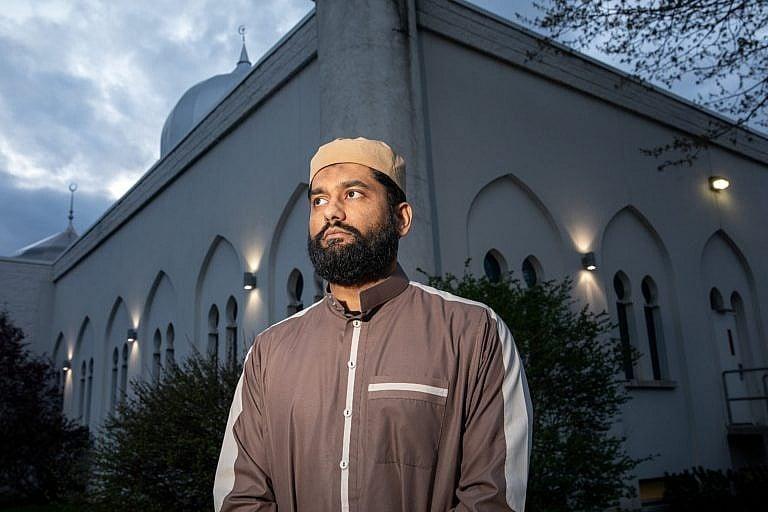
Ramadan, the month of fasting for Muslims that ended in late April, is a time of community. Families gather to break fast together, and the mosque is always full for night prayers. But there was a rise in hate crimes against Muslims in Canada this past month. A man attempted to run over congregants at the Islamic Society of Markham. At another Markham mosque, a man yelled slurs at worshippers and was charged with three counts of assault. Yet another man broke into a Montreal mosque, shattering its glass doors while worshippers prayed inside. In New Jersey, an imam was stabbed while leading morning prayer. Mosques are spaces of peace and sanctuary. Watching these attacks has been terrifying.
This kind of hate isn’t new. I’m a chaplain at Western University but I was imam of the London Muslim Mosque for two years, between 2020 and 2022. I used to receive all sorts of vile anonymous letters and voicemails attacking Muslims and peddling Islamophobic stereotypes. Muslims would tell me about their own experiences with hate. These are stories that don’t leave you: one woman said that shortly after 9/11, when she was still in school, a classmate approached her in the cafeteria and told her that “her people” had attacked “us.” Mosque shootings at home in Quebec and abroad in Christchurch made us question if we’re even safe in our own communities.
It was an early Monday morning in June of 2021 when the president of the London Muslim Mosque called me. He told me that the night before, a man drove into a Muslim family out for a walk on a busy London street. Maybe no one died, I thought. Maybe they were just injured. I rushed to the mosque. Our tight-knit Muslim community was already talking about what had happened—I needed to find out for myself.
I found the other imams in the mosque’s foyer, next to London’s deputy police chief and another constable. He confirmed our worst fear: the van attack was a targeted hate crime. We were in shock and, for a long time, no one spoke. We were scared and angry: how could this have happened? When it finally sank in, some people started crying. I didn’t realize who the victims were until our custodian showed me a WhatsApp picture of Salman Afzaal, whose smiling face I often saw in the congregation.
I taught Yumnah Afzaal, Salman’s daughter, Islamic studies at a local Islamic school when she was in Grade 8. She was smart and studious, always at the top of her class. She handed in her assignments on time and did her work diligently. As a teacher, you’d be lucky to have a student like that. She was quiet and so talented: Yumnah once painted a mural for the school of a crescent moon with a star shooting out of Earth, next to the words “Shoot for the moon. Even if you miss, you’ll land among the stars.” It was beautiful and I was amazed by her creativity.
Losing Yumnah and her family was devastating. There’s no other way to describe it. You hear about Islamophobia on the news, but seeing that hate in your own community shakes you.

It was hard to find time to grieve. There was so much happening. Two days after the attack, on Tuesday, we hosted a vigil with Prime Minister Justin Trudeau. On Friday, there was an interfaith march. The day after that was the Afzaals’ funeral service. These events were nationally broadcast, and friends and family of the victims shared their stories with the media. We offered counselling to community members who needed it. There was an outpouring of support from the non-Muslim community too: people laid flowers at the mosque and where the Afzaal family was struck, wrote messages of support and walked with us while we grieved.
The attack changed so much. We wondered if we were safe in the streets we grew up in. Muslim women told me they were scared of wearing their hijabs outside, afraid it would make them a visible target for hate. The mosque hired a security guard for daily prayers and at night during Ramadan. There are surveillance cameras and gates and extra security for Friday prayers when a lot of Muslims come to the mosque. But there’s only so much we can do, and only so many times we can ask police to patrol the area. Hearing about hate crimes now opens up the grief of losing the Afzaal family all over again. It’s unnerving to feel like we’re always looking over our shoulder.
A couple of weeks ago, during Ramadan, there was a person sitting in their car in the mosque parking lot. Everybody else was rushing into the mosque for night prayers, but this person looked like they were about to drive off. I stopped and stared at them, wondering what they were thinking and why they were just sitting there. I hate that I was suspicious of them.
In the end, nothing happened. But the terror we’ve lived through stays with you.
—As told to Sabra Ismath
